25 Jan 2023 | Australia, Austria, Bahrain, Belarus, Belgium, Botswana, Burma, China, Cuba, Czech Republic, Denmark, Equatorial Guinea, Eritrea, Estonia, Ethiopia, Finland, Germany, Greece, Index Index, Ireland, Laos, Latvia, Lithuania, Moldova, Netherlands, News and features, Nicaragua, North Korea, Norway, Portugal, Romania, Russia, Saudi Arabia, South Africa, South Sudan, Swaziland, Switzerland, Syria, Turkmenistan, United Arab Emirates, United States, Yemen
A major new global ranking index tracking the state of free expression published today (Wednesday, 25 January) by Index on Censorship sees the UK ranked as only “partially open” in every key area measured.
In the overall rankings, the UK fell below countries including Australia, Israel, Costa Rica, Chile, Jamaica and Japan. European neighbours such as Austria, Belgium, France, Germany and Denmark also all rank higher than the UK.
The Index Index, developed by Index on Censorship and experts in machine learning and journalism at Liverpool John Moores University (LJMU), uses innovative machine learning techniques to map the free expression landscape across the globe, giving a country-by-country view of the state of free expression across academic, digital and media/press freedoms.
Key findings include:
-
The countries with the highest ranking (“open”) on the overall Index are clustered around western Europe and Australasia – Australia, Austria, Belgium, Costa Rica, Denmark, Estonia, Finland, Germany, Ireland, Latvia, Lithuania, Netherlands, New Zealand, Norway, Portugal, Sweden and Switzerland.
-
The UK and USA join countries such as Botswana, Czechia, Greece, Moldova, Panama, Romania, South Africa and Tunisia ranked as “partially open”.
-
The poorest performing countries across all metrics, ranked as “closed”, are Bahrain, Belarus, Burma/Myanmar, China, Cuba, Equatorial Guinea, Eritrea, Eswatini, Laos, Nicaragua, North Korea, Saudi Arabia, South Sudan, Syria, Turkmenistan, United Arab Emirates and Yemen.
-
Countries such as China, Russia, Saudi Arabia and United Arab Emirates performed poorly in the Index Index but are embedded in key international mechanisms including G20 and the UN Security Council.
Ruth Anderson, Index on Censorship CEO, said:
“The launch of the new Index Index is a landmark moment in how we track freedom of expression in key areas across the world. Index on Censorship and the team at Liverpool John Moores University have developed a rankings system that provides a unique insight into the freedom of expression landscape in every country for which data is available.
“The findings of the pilot project are illuminating, surprising and concerning in equal measure. The United Kingdom ranking may well raise some eyebrows, though is not entirely unexpected. Index on Censorship’s recent work on issues as diverse as Chinese Communist Party influence in the art world through to the chilling effect of the UK Government’s Online Safety Bill all point to backward steps for a country that has long viewed itself as a bastion of freedom of expression.
“On a global scale, the Index Index shines a light once again on those countries such as China, Russia, Saudi Arabia and United Arab Emirates with considerable influence on international bodies and mechanisms – but with barely any protections for freedom of expression across the digital, academic and media spheres.”
Nik Williams, Index on Censorship policy and campaigns officer, said:
“With global threats to free expression growing, developing an accurate country-by-country view of threats to academic, digital and media freedom is the first necessary step towards identifying what needs to change. With gaps in current data sets, it is hoped that future ‘Index Index’ rankings will have further country-level data that can be verified and shared with partners and policy-makers.
“As the ‘Index Index’ grows and develops beyond this pilot year, it will not only map threats to free expression but also where we need to focus our efforts to ensure that academics, artists, writers, journalists, campaigners and civil society do not suffer in silence.”
Steve Harrison, LJMU senior lecturer in journalism, said:
“Journalists need credible and authoritative sources of information to counter the glut of dis-information and downright untruths which we’re being bombarded with these days. The Index Index is one such source, and LJMU is proud to have played our part in developing it.
“We hope it becomes a useful tool for journalists investigating censorship, as well as a learning resource for students. Journalism has been defined as providing information someone, somewhere wants suppressed – the Index Index goes some way to living up to that definition.”
21 Jun 2021 | Austria, Macedonia, Media Freedom, Netherlands, Ukraine
[vc_row][vc_column][vc_column_text]
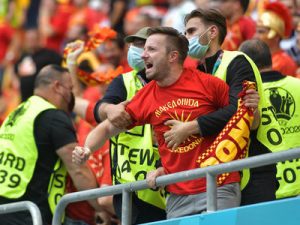
North Macedonia fans at Euro 2020. Razvan Pasarica/SPORT PICTURES/PA Images
In celebration of one of football’s biggest international tournaments, here is Index’s guide to the free speech Euros. Who comes out on top as the nation with the worst record on free speech?
It’s simple, the worst is ranked first.
We continue today with Group C, which plays the deciding matches of the group stages today.
1st Ukraine
Ever heard of the “Information War”? It is probably the biggest threat to freedom of speech in Ukraine and consumes most of the attention directed towards the state where there is often a distinct lack of freedom of expression. The information war between Russia and Ukraine is supposedly solely pro-Russian propaganda, but recent trends show that Ukraine is just as guilty of press freedom violations in this area.
The former Index employee currently detained in his native Belarus Andrei Aliaksandrau explained the tensions and Information War between the two countries back in 2014.
He wrote: “The more you lie, the less you need to shoot. And if you are very good at propaganda, you don’t need to shoot at all to win a war. The principles of an information war remain unchanged: you need to de-humanise the enemy. You inspire yourself, your troops and your supporters with a general appeal which says: “We are fighting for the right cause – that is why we have the right to kill someone who is evil.””
Essentially, propaganda between the two has forced true, fact-checked information to become secondary to a slanging match that has accompanied a territorial dispute between Russia and Ukraine over Crimea.
Ukrainian law stripped three Russian state TV channels of their licences in February earlier this year and they can no longer be shown in Ukraine.
At the time Jeanne Cavelier, the head of RSF’s Eastern Europe and Central Asia desk said: “Even if the desire to combat propaganda is legitimate, it does not justify the use of censorship, and banning these TV channels is liable to stir up violence against journalists. This violation of freedom of expression violates Ukraine’s international obligations.”
The situation has also created an atmosphere in which journalists can be targeted and physically attacked. Eight journalists have been killed in Ukraine since 2014, according to the Committee to Protect Journalists, four of them seemingly in a crossfire between Ukrainian and pro-Russian separatist forces.
The most recent killing was in 2019 with the death of Vadym Komarov, killed after a Facebook post revealed that he planned to publish allegations of corruption within local authorities.
Komarov was found in the city of Cherkasy, central Ukraine, with blunt trauma injuries to the head on 4 May 2019, he died in hospital on 20 June.
2nd North Macedonia
In North Macedonia, journalists are no stranger to threats and harassment. This, added to the actions of corrupt officials leads to what Reporters Without Borders (RSF) describes as a “culture of impunity”.
Violent threats towards reporters are common. Journalist Miroslava Byrns was subjected to threatening messages online after reporting on a wedding with 200 guests in the town of Tetovo, during the Covid-19 pandemic in July 2020. Byrns received one message that read “you will see what will happen to you” and was given 24-hour police protection in response.
Similarly, journalist Tanja Milevska received equally disgusting abuse after questioning the use of “Macedonia” by Hungarian Prime Minister Viktor Orbán. The country’s name was changed in 2019, ending a long running dispute with Greece.
As a result, Milevska received a variety of awful online threats and abusive messages, including those of rape and graphically detailed violence.
Threats, sadly, are indicative of a culture of targeting bred by some North Macedonian officials.
In February 2020, then assistant head of department at North Macedonia’s Central Registry Emil Jakimovski, sent threats that included sexual comments to Meri Jordanovska and Iskra Korovesovska, the deputy editor of news website A1on and editor-in-chief of local broadcaster Alfa TV respectively. Jakimovski was later sacked.
The incident was not unusual. In 2019, local government staffers in the town of Aračinovo attempted to force a journalist and cameraman from TV21 to delete camera footage of interviews with local residents after requesting an interview with Mayor Milikije Halimi.
The two were locked in a room before being forcibly driven to the TV21 headquarters.
There is general distrust between the media and government. In 2015, the Macedonian government were found to have been wiretapping citizens, as well as over 100 journalists. The scandal led to the downfall of the then government.
It was found that the government was using the spying software FinFisher. FinFisher, according to Computer Weekly, is “a sophisticated and easy-to-use set of spying tools that is sold only to governments”.
Use of this technology is a clear violation of the rights of North Macedonian journalists to report without fear or intimidation.
3rd Austria
Most of the concerns around free speech in Austria arise due to defamation suits.
Strategic lawsuits against public participation (Slapps) are common in Austria. Slapps are a type vexatious defamation lawsuit usually aimed at journalists by large corporations or governments. The aim is to stop the journalist from publishing certain information, or pressure them with court cases that are time consuming and extremely costly.
According to Georg Eckelsberger of the investigative media outlet Dossier, letters threatening legal action are often received by journalists in Austria.
In 2017, for example, vice president of the autonomous province Bolzano in Italy and its minister for agriculture Arnold Schuler filed a Slapp against the Jurek Vengels and the Munich Environmental Insititue (MEI) and author Alexander Schiebel. The MEI and Schiebel had helped uncover the use of dangerous pesticides by farmers in Germany.
Commissioner for human rights of the Council of Europe Dunja Mijatović cited the case in expressing her concerns over Slapps. She said: “While this practice primarily affects the right to freedom of expression, it also has a dramatic impact on public interest activities more broadly: it discourages the exercise of other fundamental freedoms such as the right to freedom of assembly and association and undermines the work of human rights defenders.”
The non-profit organisation Freedom House pointed towards libel laws protecting politicians from proper questioning, particularly members of the right-wing populist party, the Freedom Party of Austria (FPÖ). The FPÖ have been responsible for the targeted bullying of Austrian journalists.
A growing trend in the country is also tensions between press and anti-lockdown protesters, something that has been echoed across Europe (BBC Newsnight political editor Nick Watt was hounded outside Downing Street only last week).
On 6 March 2021, several photojournalists covered anti-lockdown demonstrations in the Austrian capital of Vienna. Once again, the FPÖ were heavily involved and signs and placards were seen that read “the lying press”.
4th Netherlands
The Netherlands’ record on free speech is generally good.
Perhaps one of the clearest developments regarding free speech in the Netherlands in recent years is the court case involving the online abuse of journalist Clarice Gargard.
The case, which took two years to reach a judgement, saw 24 people convicted of incitement, insult and discrimination after Gargard was abused during a live stream of a protest she took part in against Zwarte Pieta, a blackface caricature part of traditional Christmas celebrations in the Netherlands.
The case, which journalist Fréderike Geerdink wrote about for Index in the recent winter edition of the magazine, was a landmark moment in retributory action taken against those threatening journalists in the country.
The case exists now as a precedent that may deter people from sending the kind of racist and sexist abuse Gargard was subjected to.
Freedom of speech is protected by the Dutch constitution but is not absolute and it is the incitement law that is contentious. Dutch people can be charged with incitement even if the comment is in relation to an inanimate object.
Generally, however, there is little to stop someone one the Netherlands, legislatively speaking, from speaking out. Also, on the case of incitement, 70 to 90 per cent of cases don’t go to trial, according to an article by The New Republic.
That said, the International Press Institute (IPI) has expressed concern over an increase in threats to reporters after government-imposed coronavirus curfew restrictions. A number of senior reporters in news organisations have noticed increasingly threatening attitudes towards journalists during the pandemic. Partly, some believe, due to conspiracy theorists equating government restrictions such as lockdowns a face masks being supposedly due to a media narrative.
They said: “In 2020, monitoring groups in the Netherlands charted a significant increase in threats and acts of aggression against journalists, with figures nearly trebling on the previous year from 52 to 141. While this may in part be down to the success of the new PressVeilig (Press Safety) hotline – a joint initiative of the NVJ, the Association of Editors-in-Chief, the Police and the Public Prosecution Service – editors have still noted a clear increase in hostility.”
Other Groups
Group A
Group B
Group D
Group E
[/vc_column_text][/vc_column][/vc_row][vc_row][vc_column][three_column_post title=”You may also like to read” category_id=”581″][/vc_column][/vc_row]

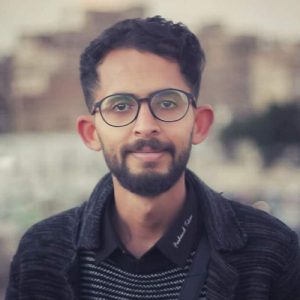 Yemeni artist Thiyazen Al-Alawi uses his craft to shed light on the destructive situation in Yemen through street art campaigns. He hopes to inform the public of what the war has done to his homeland.
Yemeni artist Thiyazen Al-Alawi uses his craft to shed light on the destructive situation in Yemen through street art campaigns. He hopes to inform the public of what the war has done to his homeland.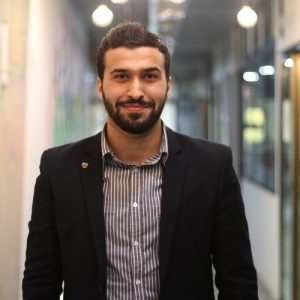 Moe Moussa is a journalist, podcaster, poet, and the founder of the Gaza Poet Society. He uses various forums and mediums to amplify the voices of Palestinians.
Moe Moussa is a journalist, podcaster, poet, and the founder of the Gaza Poet Society. He uses various forums and mediums to amplify the voices of Palestinians.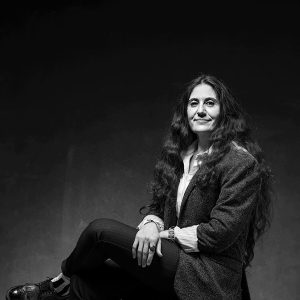 Fatoş İrwen is a Kurdish artist and teacher from Diyarbakır, Turkey working with a variety of materials and techniques.
Fatoş İrwen is a Kurdish artist and teacher from Diyarbakır, Turkey working with a variety of materials and techniques.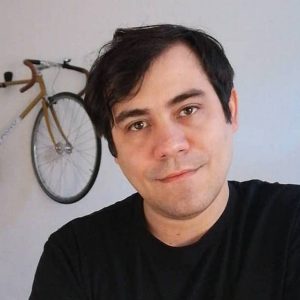 Hamlet Lavastida has been described as a political activist by way of art. Lavastida uses his art to document human rights abuses in Cuba and to criticise Cuban authorities.
Hamlet Lavastida has been described as a political activist by way of art. Lavastida uses his art to document human rights abuses in Cuba and to criticise Cuban authorities.